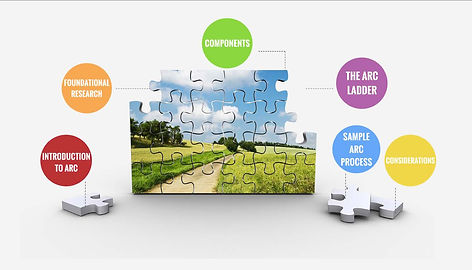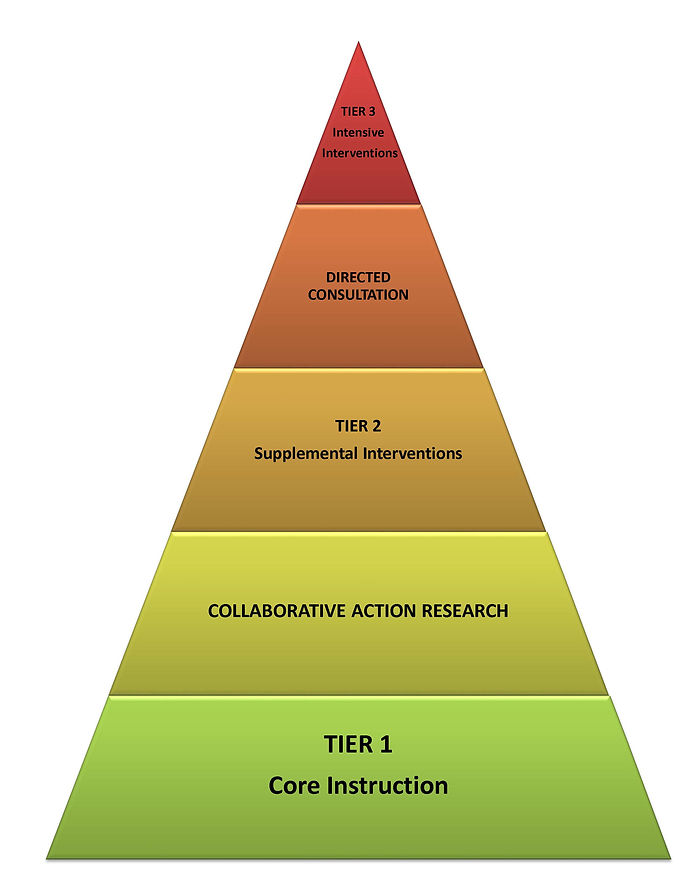Locating Action Research and Directed Consultation in a PRtI Framework
Action research and directed consultation are both stand alone frameworks that can be explored and implemented to support schools, staff, and students through analysis and improvement of practice. They are both data driven and allow for the examination of specific issues and concerns with regards to a school's unique context. Both are intensive endeavours, but may meet different aspects of a school's needs. Coordinating them within a framework could potentially serve as a means for educators to examine areas of interest or need, and also to seek specialist support for more intensive concerns.
"When you don't know that you don't know, it's a lot different than when you do know that you don't know."
Bill Parcells
A major intention of building this website was to provide educators with an introduction to the frameworks of collaborative action research and directed consultation as they are empowering processes. The idea of coordinating them within a pyramid response to intervention model followed, and is only currently being developed. As the process is explored, tested, and opened to the evaluation and input of stakeholders, it will be refined. Still, it is presented as a potentially viable tool to support schools and educators in meeting their students' needs. The Prezi provides more insight into the research, process, and examples of how it may be utilized.


TIER 3
-
explicit and intensive instruction and daily supplemental intervention time
-
tailored interventions in small groups, recommended not more than 1:3 teacher to student ratio
-
support for educators through collaboration, coaching, and professional development opportunities
This is a great place to tell your story and give people more insight into who you are, what you do, and why it’s all about you.
Directed Consultation
-
directed consultation can follow action research phase or be started if staff and student needs are intensive
-
if following AR, data collected may be useful for initial planning phase with intervention specialist
-
DC process: data collection; tailored general training, ongoing training; implementation consultation
TIER 2
-
intervene with intentional non-learners through goal-setting, homework club, home communication, rewards
-
support failed learners with additional time, targeted interventions, frequent progress monitoring
-
utilize most qualified educators, evidence-based interventions, and team-based problem solving
Collaborative Action Research
-
begin the action research process: identify areas of concern; expand knowledge base; develop an action plan, data collection plan, and timeline; implement plan and analyze data; reflect on results, report on progress, and decide next steps
TIER 1
-
use universal screening to gather initial information
-
deliver research-based core programs with adequate training, time, and fidelity
-
utilize differentiated, small-group instruction
-
prioritize need to know/essential curriculum
-
analyze student progress with formative data

